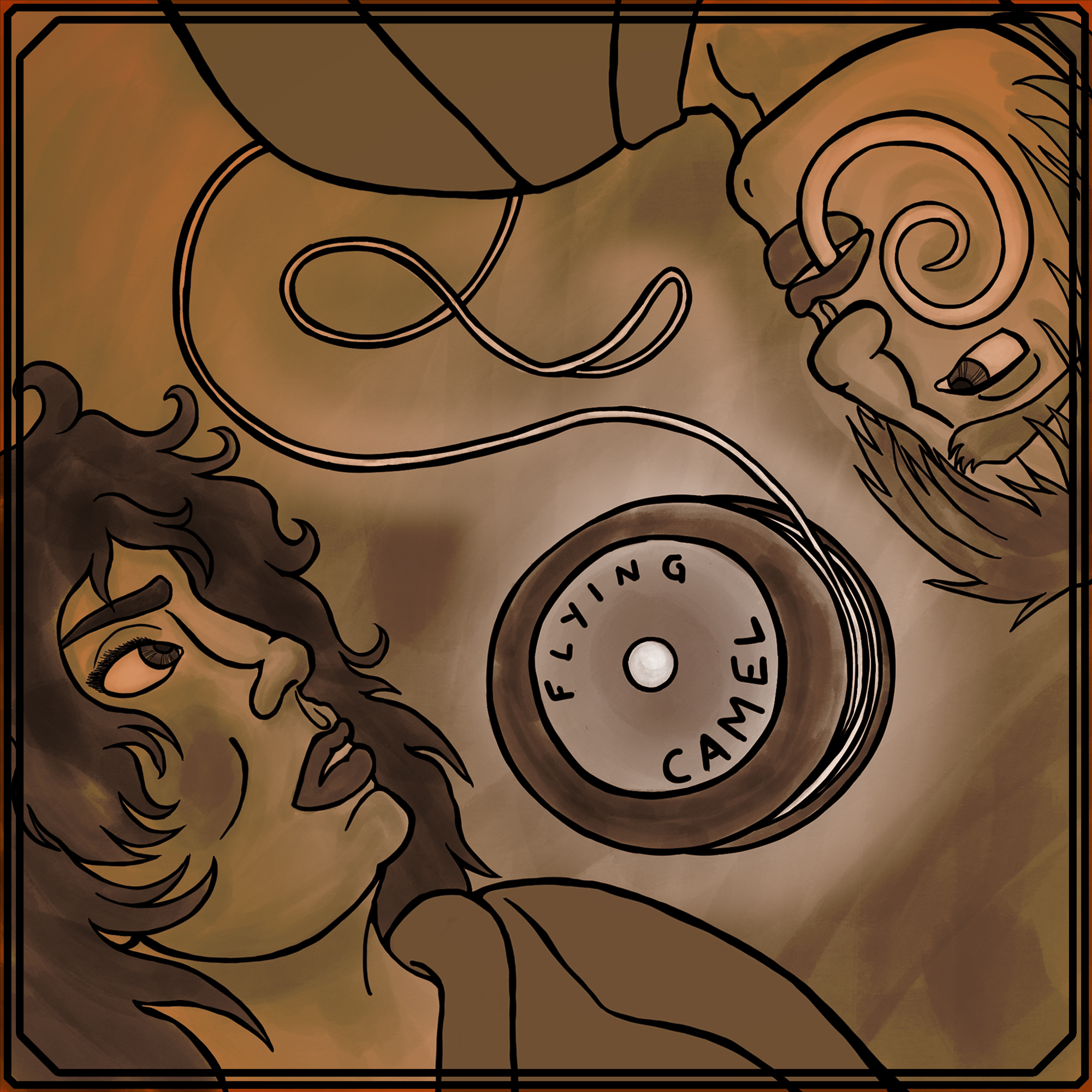006: Looking Across the Riverfrom Two Directions, by Scott Szpisjak
/About the Author: Scott Szpisjak lives in Virginia with his dog and a lot of pens. He can most commonly be found not sleeping. His work has appeared previously in Grey Sparrow Journal, Foliate Oak Literary Magazine, and on the website of New Politics Magazine.
Looking Across the Riverfrom Two Directions
by Scott Szpisjak
I. From Melagrib
The window washer ran the rag over the pane one last time before admiring his work. He could only see bits of the windows through the sea of plants sitting on tables, on benches, hanging from the ceiling. Each was far from its home in the Southern Colonies. He was almost halfway done, the ceiling notwithstanding. He always saved it for last, never remembering what he had always been told about delayed gratification.
Dawn glinted off the glass panes and brass caming. The river, stained pink, was barely visible through the fog. The house was close to the riverbank, so the slums on the opposite bank seemed to rise above the city like an ocean wave floating in the fog. The window washer picked up a clean rag and continued around the greenhouse wall, washing pane by pane. The fog began clearing. He stared through it to the slums. It was near impossible to tell where each building, each garden, began and ended. The window washer searched for the home where he had grown up, where he brought money when there was enough left over. The whole place had become alien to him once he’d left it to work. He couldn’t find it.
A bee flew towards the window, trying to reach the flowers that bloomed despite the start of the autumn rains. The window washer stopped to watch it. It found its way in through a broken pane of glass that he had not seen. He set down his rag and inspected the damage. The bee settled onto a blue flower. The river settled at a slate grey.
The window washer noticed part of a brick on the broken shards of a pane of the greenhouse’s glass; it had been thrown from the street, which was still empty. A memory emerged at the top of the window washer’s mind. A few nights previously, the head maid had told him in whispered tones of a war she had overheard discussion of, in a country far to the south. A revolution. As soon as the last word escaped her mouth, she was gone, hidden behind the pile of bedding she carried out of the room.
He put the brick in his bag. The window washer brushed the glass shards into an empty pot, accidentally slicing open a fingertip in the process. He wrapped a rag around the wound to keep the blood off the tile floor.
He washed the rest of the windows, cleaning until he had used all of his rags. He heard the head maid’s footsteps. Gathering his supplies, the window washer turned around to ask her a question.
II. To Melagrib
The gardener mounted the stairs to the roof and set to weeding the vegetable patch, so large it seemed like it would slide off into the street. It was still quiet; she was always one of the first to begin work. Masked by the fog, a few men were off to work in the factories, and below her small clusters of women stood waiting at a well. As the sun rose, the silence would be replaced with the hum of daily activity. More recently, the hum had been supplemented by marching and chanting and singing, both in the gardener’s native language and a tongue spoken at the southern tip of the continent.
As the fog slowly cleared, the gardener had to squint in the harsh morning sun. The pink light glinted off the windows and gold caming of the greenhouse salons across the river.
A group of bees flew down the hill from a hive a few houses back, landing on the last blooms of the season. The gardener stopped to watch them for a moment. As the bees settled into their routine, she looked across the river, searching for the house where her son worked. He had told her how to find it—four blocks over and five blocks down or maybe it was six—from the palace’s highest tower. She settled on a likely candidate; it didn’t matter if she was right. The bees emerged from the flowers and flew off. The gardener returned to her work. A moment later, another bee emerged, not realizing it had been left behind. It flew over the river, away from the others.
Her tasks complete, the gardener stood and brushed the dirt from her pants. She plucked a few mint leaves from the healthiest plant and brought them downstairs. She boiled the last of the water from the day before. Next, she would have to pump that day’s. She put the leaves in a mug before flooding it with water. The gardener waited by the window until her tea was ready, until the clear water ran brown.


